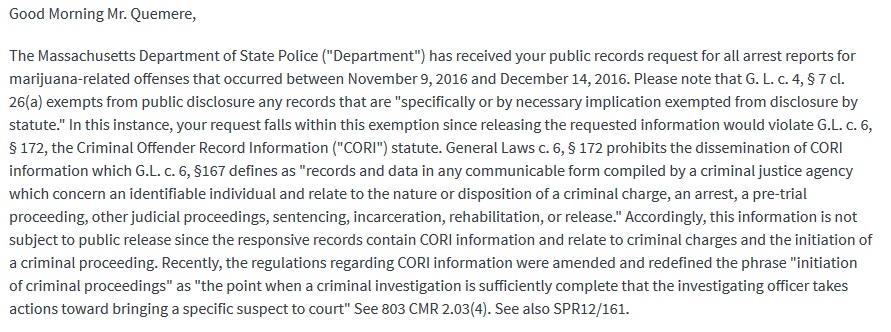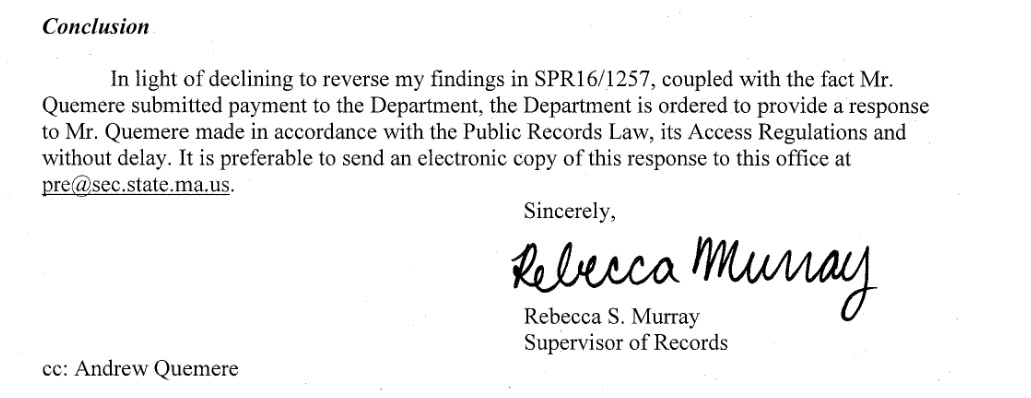After pocketing $180 in fees for a public records request, the Massachusetts State Police (MSP) turned around and attempted to convince the state supervisor of public records that the agency didn’t have to turn the records over.
The records request dates all the way back to December 2016. I asked the State Police for reports about marijuana-related arrests that occurred between November 9, 2016 and December 14, 2016. Those dates are when voters passed Question 4, which legalized recreational marijuana, and when the marijuana legalization law took effect. I wanted to see if, after voters passed Question 4, the MSP continued to make arrests for conduct which would soon be legal.
Initially, the MSP refused to turn over the arrest reports, citing the Criminal Offender Record Information (CORI) statute, which protects “records and data in any communicable form compiled by a criminal justice agency which concern an identifiable individual and relate to the nature or disposition of a criminal charge, an arrest, a pre-trial proceeding, other judicial proceedings, sentencing, incarceration, rehabilitation, or release.”

In a December 30 appeal, I argued that the arrest reports were not protected by the CORI statute because identifying information about the people who were arrested could be redacted. In a January 9 ruling, Supervisor of Records Rebecca Murray agreed and ordered the MSP to provide the records.
After that ruling, the MSP assessed a fee of $180 for the reports.

I raised the money through a crowdfunding campaign, and MuckRock sent the MSP a check on March 1. However, the MSP never turned over the records or even acknowledged receiving the check. On March 31, I asked the MSP if they had received the check, but the agency did not respond. So on April 18, I filed another appeal with the supervisor of records.
In an April 24 ruling, the supervisor of records wrote that she “learned that a representative from the Department intends on providing Mr. Quemere with the requested records.” She further stated that she was closing the appeal “with the proviso that the Department provide said response within ten (10) business days.”

But that didn’t happen.
Instead, Glenn Rooney, an MSP lawyer sent the supervisor of records an email on April 28th in which he again argued that the reports were exempt under the CORI statute. Rooney wrote that the CORI statute allows agencies to withhold records in their entirety, and there is no obligation for them to redact records protected by CORI. He further argued that the MSP could not release the records because someone could use police logs to identify the arrestees.
After that, I didn’t hear anything from the supervisor of records or MSP, so I filed a third appeal on May 22nd. In a July 18th ruling, the supervisor of records rejected the MSP’s CORI argument again. “After another careful and thorough review of this matter, I respectfully decline to reverse my findings. Any non-exempt, segregable portion of a public record is subject to mandatory disclosure,” she wrote.

I’d like to call that a win, but when you’re dealing with the State Police - 2015 winners of the Golden Padlock “Award” - you shouldn’t count your records before they’re in your hands.
Read the successful appeal appeal embedded below, or on the request page:
Image via Massachusetts State Police Facebook




